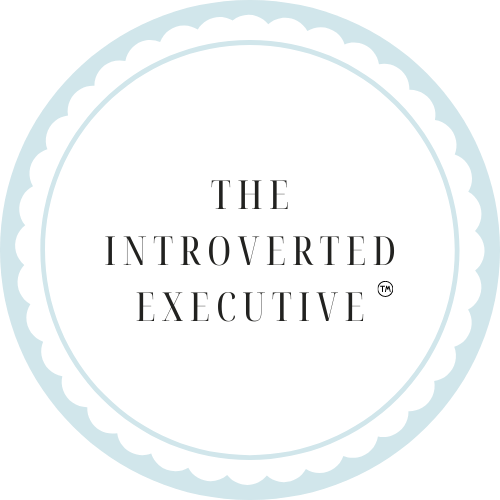
Do you feel like you are not in control? Maybe you believe you do not have time to change some things and you feel like your family, job, school, or other responsibilities are out of your control. Maybe it is a teacher, professor, or a supervisor at work affecting you. You feel like they do not like you and there is nothing you can do about that. Maybe something as simple as being a woman has you feeling like you cannot do something, because you perceive that you won’t be welcome. On this blog and our podcast, we talk a lot about goal setting, attributes of high performers, and how to achieve our own version of success, but none of us can achieve our goals or reach our dreams if we do not strengthen our internal locus of control.
Locus of control can be defined as the degree to which people believe that they have control over the outcome of events in their lives, as opposed to external forces beyond their control. Julian B. Rotter developed the concept in 1954. Basically, if a person believes that they are in control of most situations and can control their overall life, they are said to have an internal locus of control. If a person believes they cannot control or influence outside factors and those factors are responsible for the outcome of most situations, then they are said to have an external locus of control.
People with a strong internal locus of control believe events in their life are as a result of their own actions. For example, when receiving an annual performance evaluation at work, people with an internal locus of control tend to praise or blame themselves and their own abilities. People with a strong external locus of control tend to praise or blame external factors such as the supervisor or the responsibilities of the position rather than their own efforts.
It is not so easy to say that internal is better than external, but a more internal locus of control is generally seen as desirable. Psychological research has found that people with a stronger internal locus of control seem to be to be more success oriented and tend to rise higher within organizations.
ACTION: Take this test, and answer as honestly as you can, after all – only with true reflection, will you be able to know who you are and be able to find where you can try to improve.
Rotter’s Locus of Control Scale
For each selection below, select the statement that you agree with the most:
1.a. Many of the unhappy things in people’s lives are partly due to bad luck.
b. People’s misfortunes result from the mistakes they make.
2.a. One of the major reasons why we have wars is because people don’t take enough interest in politics.
b. There will always be wars, no matter how hard people try to prevent them.
3.a. In the long run people get the respect they deserve in this world
b. Unfortunately, an individual’s worth often passes unrecognized no matter how hard he tries
4.a. The idea that teachers are unfair to students is nonsense.
b. Most students don’t realize the extent to which their grades are influenced by accidental happenings.
5.a. Without the right breaks, one cannot be an effective leader.
b. Capable people who fail to become leaders have not taken advantage of their opportunities.
6.a. No matter how hard you try some people just don’t like you.
b. People who can’t get others to like them don’t understand how to get along with others.
7.a. I have often found that what is going to happen will happen.
b. Trusting to fate has never turned out as well for me as making a decision to take a definite course of action.
8.a. In the case of the well-prepared student there is rarely if ever such a thing as an unfair test.
b. Many times exam questions tend to be so unrelated to course work that studying in really useless.
9.a. Becoming a success is a matter of hard work, luck has little or nothing to do with it.
b. Getting a good job depends mainly on being in the right place at the right time.
10.a. The average citizen can have an influence in government decisions.
b. This world is run by the few people in power, and there is not much the little guy can do about it.
11.a. When I make plans, I am almost certain that I can make them work.
b. It is not always wise to plan too far ahead because many things turn out to – be a matter of good or bad fortune anyhow.
12.a. In my case getting what I want has little or nothing to do with luck.
b. Many times we might just as well decide what to do by flipping a coin.
13.a. Who gets to be the boss often depends on who was lucky enough to be in the right place first.
b. Getting people to do the right thing depends upon ability. Luck has little or nothing to do with it.
14.a. As far as world affairs are concerned, most of us are the victims of forces we can neither understand, nor control.
b. By taking an active part in political and social affairs the people can control world events.
15.a. Most people don’t realize the extent to which their lives are controlled by accidental happenings.
b. There really is no such thing as “luck.”
16.a. It is hard to know whether or not a person really likes you.
b. How many friends you have depends upon how nice a person you are.
17.a. In the long run the bad things that happen to us are balanced by the good ones.
b. Most misfortunes are the result of lack of ability, ignorance, laziness, or all three.
18.a. With enough effort, we can wipe out political corruption.
b. It is difficult for people to have much control over the things politicians do in office.
19.a. Sometimes I can’t understand how teachers arrive at the grades they give.
b. There is a direct connection between how hard 1 study and the grades I get.
20.a. Many times, I feel that I have little influence over the things that happen to me.
b. It is impossible for me to believe that chance or luck plays an important role in my life.
21.a. People are lonely because they don’t try to be friendly.
b. There’s not much use in trying too hard to please people, if they like you, they like you.
22.a. What happens to me is my own doing.
b. Sometimes I feel that I don’t have enough control over the direction my life is taking.
23.a. Most of the time I can’t understand why politicians behave the way they do.
b. In the long run the people are responsible for bad government on a national as well as on a local level.
See the bottom of this page to score your test.
Can you change your locus of control?
What can you do to change your locus of control from external to more internally focused? If your score is medium or low, you may tend to think things are out of your control and that you cannot affect your situation. Locus of control is one of those attributes that makes up our personality, and can be difficult to change. If you are a parent, teacher, care giver, or other person that has influence over small children – you can help them by encouraging them for their abilities and praising hard work when demonstrated. This may help them feel they can use their abilities and good effort to change a situation as they develop and grow to be adults. If you are already a teen or an adult and would like to change your locus of control, there are exercises you can do to strengthen your internal locus of control.
Here are a few ideas to focus on:
- Listen to how to talk to yourself. Most people do talk negatively to themselves, but this can be controlled, you can teach yourself to talk more positively.
- In conjunction with the first thought, work on removing the words always and never from your self-talk vocabulary. Especially when used in a negative way. “I always screw this up.” “I’ll never get promoted.” Focus on the positive things you did today and think, “It was awesome when my co-worker praised my document.” “I knocked that presentation out of the park today!”
- Focus on your words and thoughts and reduce the times you say, “I have no choice.” Do not say, “I can’t.” You DO have a choice, and if you take certain steps – YOU CAN! I am not saying the steps are easy, but YES, you can. The truth is that it may be hard work, and you should decide if you want to do it. I find when I do the hard work, especially when I thought it might be too hard, that when I attain my goal, it feels SO AMAZING! The more I succeed, the better I feel, and that helps change the self-talk in my head. It’s a beautiful cycle.
- Work on maintaining a positive attitude. I talk more about that in this article (Click here.)
Remember – YOU DO HAVE A CHOICE and you can make your life a better place! You have to decide that it what you want and if you do, then YES – in many ways, you can control your future!
Give yourself one (1) point for each of the following:
- 1b
- 2a
- 3a
- 4a
- 5b
- 6b
- 7b
- 8a
- 9a
- 10a
- 11a
- 12a
- 13b
- 14b
- 15b
- 16b
- 17b
- 18a
- 19b
- 20b
- 21a
- 22a
- 23b
SCORE: The closer your score is to 23, the more internal your locus of control.
